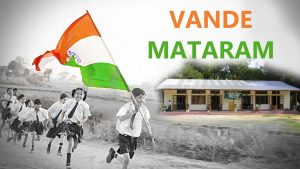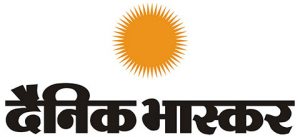
27-07-2017 (Important News Clippings)
To Download Click Here.
Managing migration, as well as brain drain
ET Editorials

Better education and job opportunities and a higher standard of living are cited among the reasons for this outflow of trained personnel. Initially described as brain drain, there has been later appreciation of the possibility of subsequent brain gain. However, the outflow of trained manpower is cause for concern, as it adversely affects the quality and quantity of local human capital formation. As a democratic country built on the cornerstone of individual rights, India cannot forbid its citizens to leave. It can, however, put in place systems that would make it possible for the country to benefit from the investment made in the young through subsidised education, particularly technical and medical.
One way to ensure this would be to adopt a system like Australia’s deferred tuition plan. Under this system, all tertiary education is subsidised by the government, with students paying only a portion of the cost as fees. Graduates who go on to work in sectors deemed as priority by the government are not required to pay any additional amounts, but those who migrate or move to non-priority sector have to pay the subsidy amount over a set number of years. This ensures that higher education remains affordable and that government’s education subsidy is not misused.For developing countries like India, the loss of human capital is a serious issue. But creating barriers is not the solution. More creative policy is the way to stem the migration of trained manpower.
Mob violence is unacceptable
The notion that anybody or any political party supports lynchings is prejudice
Japanese film maestro Akiro Kurosawa’s movie Rashomon is a wonderful meditation on truth and bias; four people witness the same event but describe “what happened” and “why it happened” very differently. Unlike physical scientists who can claim objective measurement, social scientists need to be more tentative about evidence, narratives, and conclusions.Over the last 18 months a false narrative about mob violence being driven by political blessings – the opposition recently claimed that the central government and BJP overtly support a lynching movement – is being amplified by some parts of the press. I’d like to make the case that the notion that anybody or any political party supports mob violence based on religion, caste, or eating habits is at best, prejudice and at worst, dishonesty. I hang this case on some widely reported incidents in my state to make the argument specific but my three broad themes – allegation vs conviction, story vs data, and individual motivation vs group bias – are important considerations in all incidents of mob violence.
First, allegation vs conviction. Two important principles of justice are ‘innocent until proven guilty’ and habeas corpus (protection from unlawful detention). Like Rashomon, any violence usually involves different versions from eye-witnesses, perpetrators and victims. Good police work involves taking allegations made by all sides, investigating and presenting the case to a court for justice. Allegations are not convictions.In the Pratapgarh incident that involved the regrettable death of Zafar Khan after an argument about open defecation, there are various versions of where, at what time, and how the death took place. His death was a tragedy, investigations are on, and anybody found guilty will be charged, convicted and jailed. Similarly in the incident involving Pehlu Khan seven suspects have been arrested, cases registered, and court challans filed. When proven guilty, they will face punishment.
Second, stories are more powerful than data. This human instinct is amplified in India because of the scale of our grinding poverty, painful history and deep injustices. While every unnatural death is a tragedy that should be prevented, it is a painful reality that violence and human nature sometimes go together. Over the last three years there has been no change to the number of deaths in Rajasthan (though both murders and mob violence incidents are lower in 2017 than in 2012) or communal mob violence deaths in India. Unfortunately, roughly 22,500 people die of natural and unnatural deaths in India every day; every politician I know dreams everyday of reducing natural deaths through better healthcare and unnatural deaths through police reforms and social change.
Third, individual motivation vs group bias. Human beings are cracked vessels; we aren’t perfect, don’t always handle disagreements with dialogue, and as individuals often suffer from racial, religious or gender prejudices. But extrapolating individual acts to entire groups – all Rajasthani men are chauvinists, all members of BJP are intolerant, etc – is unsound, unfair and unscientific.Leo Tolstoy wrote that happy families are all alike but every unhappy family is unhappy in its own way; most incidents of mob violence involve a curious confluence of individual motivation, circumstances, and delayed police action. It is shameful to debate whether the extreme right or extreme left is more violent and it is malicious to suggest some state administrations are “blind in the right eye”. Individuals must bear the full consequence of their actions and generalisations about groups are unhelpful.
Prime Minister Narendra Modi has emphatically and repeatedly described all mob violence as illegal acts whose perpetrators should suffer the full consequences of their actions under law. As a chief minister, I often compare notes with my colleagues in other states and all of us are clear that we never condone violence, the Constitution is supreme, and all citizens irrespective of race, religion, and gender are equal under law.I submit that anybody who suggests that any political leader or political party supports mob violence is either prejudiced (BJP’s nationalism and patriotism is inconsistent with tolerance) or dishonest (data doesn’t matter when narratives and stereotypes can be crafted). Of course the only consolation for a victim’s family is justice and I acknowledge we need to work harder to make our criminal justice system more inclusive, speedy and fair.
Many Indian metrics have gotten better since 2014: life expectancy, literacy, childbirth deaths, inflation, cleanliness, economy formalisation, currency strength and violent deaths. Lower violence is a global phenomenon. An interesting book by Steven Pinker called The Better Angels of our Nature: Why Violence has Declined suggests that five forces – modern nation states, commerce, feminisation, cosmopolitanism, and education – have reframed violence as a problem to be solved rather than a contest to be won.It is not my case that mob violence deaths in Rajasthan and India are zero, but I recognise that zero is a goal that Rajasthan and India should aspire to. The current gap between our aspiration and our reality is not a lie but a disappointment. This is a gap that politicians may not close in our lifetimes but we will die trying.
Date:27-07-17
Judicial overreach
Madras high court’s Vande Mataram order will complicate people’s lives

Such rulings also smack of judicial overreach. Separation of powers implies courts should interpret laws, not make them. The primary case before the high court pertained to one K Veeramani failing the test for the post of BT assistant as he had answered that Vande Mataram was written in Bengali and not Sanskrit (which is, in fact, correct). Thus the mandatory singing of Vande Mataram is not only tantamount to courts making laws on legislatures’ behalf, it is also tangential to the plea under consideration. The high court also overlooked the Supreme Court order on a writ petition on that specific issue in February this year, which clearly stated there is no mention in the Constitution of the ‘national song’ that Vande Mataram is meant to be.
Prime Minister Narendra Modi had argued, in the run up to 2014 Lok Sabha polls, that minimum government leads to maximum governance. The corollary of that also holds true: maximum government leads to poor governance. Complicated and unenforceable laws only lead to bureaucratic intervention in people’s daily lives and police corruption.
For example, after having ruled that people across Tamil Nadu must sing a Bengali song, the high court observed in the Vande Mataram ruling that persons or institutions can be exempted provided there are valid reasons. But who will determine these reasons and what standards will be applied haven’t been specified. This provides room for more rules, more ambiguity and more harassment by authorities (or mobs). As it is India is an over-legislated country where too many laws are unenforceable and/or do not reflect ground realities. Authorities must get out of the mai baap sarkar mindset where they dictate citizens’ choices by, for example, telling them what to eat or what to sing.
दीनदयाल उपाध्याय और गांधी को जोड़ने के मायने
संपादकीय
ज्ञान, उच्च शिक्षा व वैज्ञानिक चेतना के पुरोधा
हरिवंश चतुर्वेदी, डायरेक्टर, बिमटेक
प्रोफेसर यशपाल का निधन एक ऐसे युगपुरुष का अंत है, जिसने करीब छह दशकों तक शिक्षा, विज्ञान, जनसंचार, अंतरिक्ष विज्ञान व वैज्ञानिक चेतना के विकास के लिए उल्लेखनीय काम किया। उनका जीवन उन सभी के लिए प्रेरणा स्रोत है, जो भारत को एक आधुनिक, वैज्ञानिक चेतना से संपन्न बहुलतावादी समाज के रूप में देखना चाहते हैं। हमारे संविधान में विचारों की स्वतंत्रता को जो प्रमुखता दी गई है, प्रोफेसर यशपाल ने उसे अपनी कथनी और करनी में साकार किया।
भारत में अंतरिक्ष अनुसंधान की नींव रखने वालों में वह एक प्रमुख वैज्ञानिक थे। अमेरिका से लौटने के बाद उन्होंने टाटा इंस्टीट्यूट ऑफ फंडामेंटल रिसर्च में वैज्ञानिक अनुसंधान कार्य शुरू किया, जहां वह 1983 तक कार्यरत रहे। बाद में योजना आयोग और विज्ञान व प्रौद्योगिकी मंत्रालय में महत्वपूर्ण पदों पर काम किया। वैज्ञानिक संस्थाओं के नेतृत्व और प्रशासन के साथ उनका एक बड़ा योगदान वैज्ञानिक संप्रेषण के क्षेत्र में था। वह सबसे ज्यादा चर्चा में आए दूरदर्शन पर लंबे समय तक चले वैज्ञानिक सीरियल टर्निंग प्वॉइंट से। उस कार्यक्रम में वह पूरी सक्रियता से भाग लेते थे और गूढ़ वैज्ञानिक रहस्यों को आम बोलचाल की भाषा में समझाते थे। मुझे एक टीवी कार्यक्रम में चंद्र ग्रहण और सूर्य ग्रहण से जुडे़ अंधविश्वासों पर उनकी सारगर्भित व रोचक टिप्पणियां याद आती हैं, जिनमें उन्होंने हर प्रकार के अंधविश्वासों पर खुलकर चोट की थीं। आज देश में ऐसे लाखों व्यक्ति होंगे, जिन्हें टर्निंग प्वॉइंट में प्रोफेसर यशपाल के जरिए इंद्रधनुष, सौर-गंगा व सौर ऊर्जा के रहस्यों को समझने में मदद मिली होगी।
मुझे 1995-98 के बीच एआईसीटीई में अपने कार्यकाल के दौरान उनके साथ आने और उनके विराट व्यक्तित्व को नजदीक से देखने का मौका मिला। उन दिनों वह ‘बस्ते के बोझ के बिना पढ़ाई’ विषयक एक राष्ट्रीय समिति के चेयरमैन के रूप में अपनी रिपोर्ट तैयार कर रहे थे। तब पूरे देश से युवा शिक्षाविद् उनसे मिलने आते थे। आज देश की स्कूली शिक्षा ‘बस्ते के बोझ के बिना पढ़ाई’ वाली रिपोर्ट की सिफारिशों को लागू करने की दिशा में काफी आगे बढ़ चुकी है। उनकी इस रिपोर्ट में ‘सानंद शिक्षा’ की अवधारणा पर काफी जोर दिया गया था, जो खेल-खेल में पढ़ाई करने के तौर-तरीकों पर आधारित थी।
प्रोफेसर यशपाल को एक साहसी शिक्षाविद् के रूप में याद किया जाता है। 2002 में छत्तीसगढ़ सरकार ने एक कानून पारित करके 112 प्राइवेट यूनिवर्सिटियों को मान्यता दे दी थी। इससे पूरे देश के शिक्षा जगत में हाहाकर मच गया था। ये यूनिवर्सिटियां छोटे-मोटे निजी कॉलेज स्वामियों द्वारा मोटा मुनाफा कमाने के लिए खोली गई थीं। ज्यादातर के पास रायपुर में दो-तीन कमरे के ऑफिस की जगह थी, जहां दाखिले देने के लिए काउंसिलर बिठाए गए थे। प्रोफेसर यशपाल ने सुप्रीम कोर्ट में याचिका दायर की और उस कानून को निरस्त करने की मांग की, जिसके तहत निजी विश्वविद्यालय बनाने का फर्जीवाड़ा चल रहा था। तत्कालीन प्रधान न्यायाधीश न्यायमूर्ति आरसी लाहोटी के तीन सदस्यीय पीठ ने याचिका को स्वीकार करते हुए ऐसे 112 निजी विश्वविद्यालयों को भंग कर दिया था।
उनका एक बड़ा योगदान उच्च शिक्षा में रहा, जहां उन्होंने अपने उदारतावादी विचारों की अमिट छाप छोड़ी, जो वैज्ञानिक मानसिकता, अकादमिक स्वाधीनता, स्वायत्तता, और हिसाब-देयता से ओत-प्रोत थे। वर्ष 1986-91 तक वह विश्वविद्यालय अनुदान आयोग के चेयरमैन के रूप मेें समूचे देश की उच्च शिक्षा के नियामक रहे। वर्ष 2009 में मानव संसाधन मंत्रालय ने उच्च शिक्षा के पुनरोत्थान के लिए गठित समिति का उन्हें चेयरमैन बनाया। इस समिति की रिपोर्ट का पहला अध्याय है ‘विश्वविद्यालय का विचार’। इसमें कहा गया है- ‘विश्वविद्यालय वह स्थान है, जहां नए विचारों के बीज अंकुरित होते हैं, जड़ें पकड़ते हैं और लंबे व तगड़े बनते हैं। यह वह अनोखी जगह है, जहां रचनात्मक दिमाग मिलते हैं, एक-दूसरे से संवाद करते हैं और नई वास्तविकताओं के लिए भविष्य का रास्ता बनाते हैं।’आज हमारे विश्वविद्यालयों में चारों तरफ उठा-पटक, हिंसा, विवादों और राजनीतिक-गुटबंदी का दौर दिखता है। ऐसे में, उनके विचार ज्योति पुंज की तरह हमें रास्ता दिखाते हैं।

